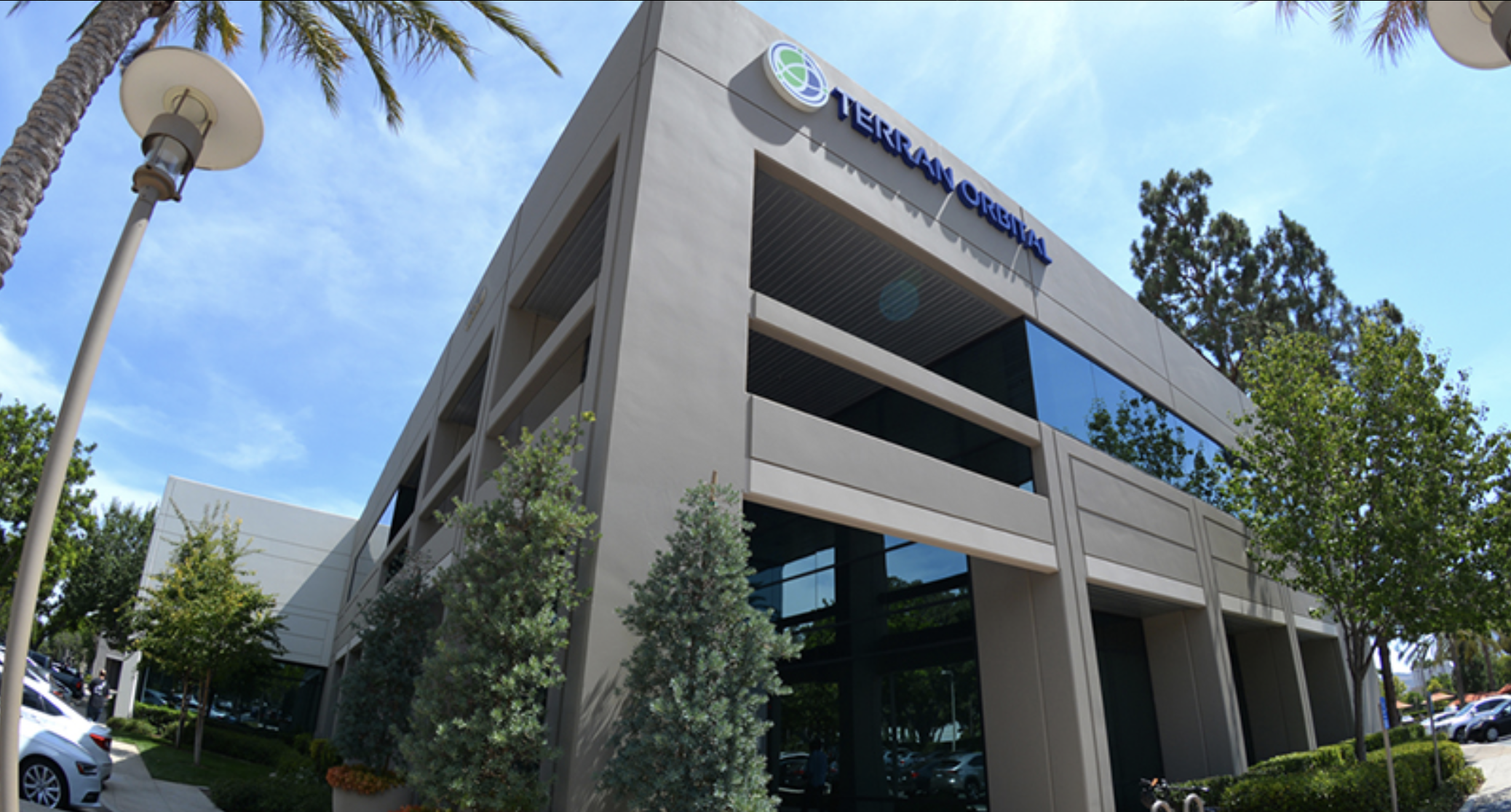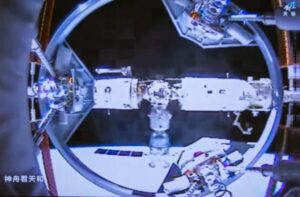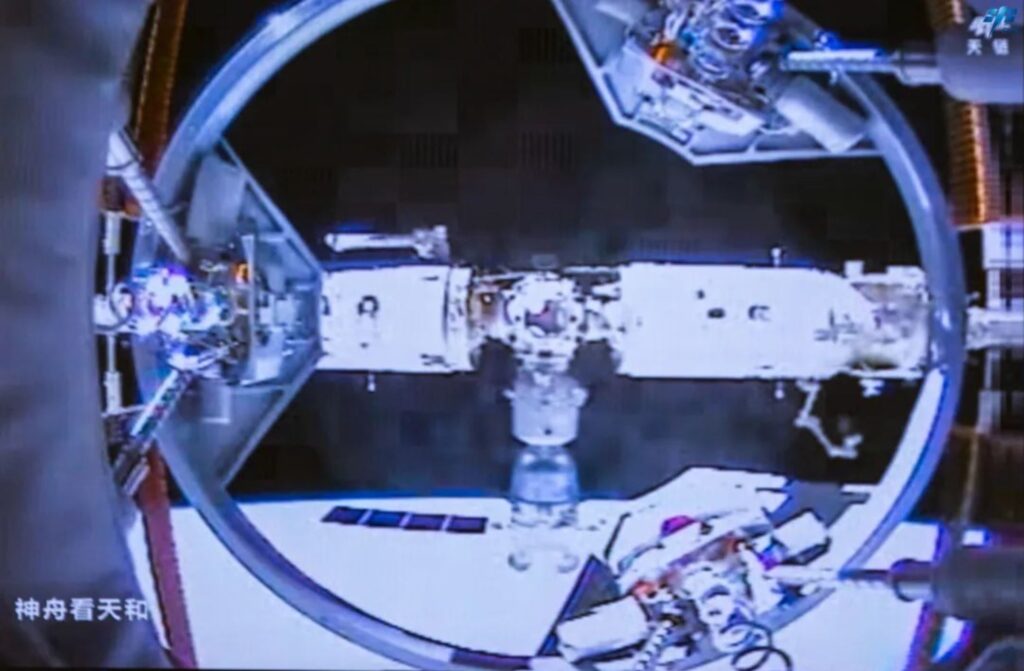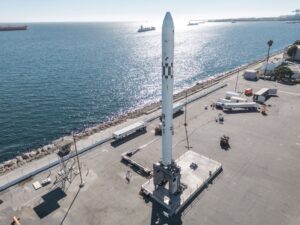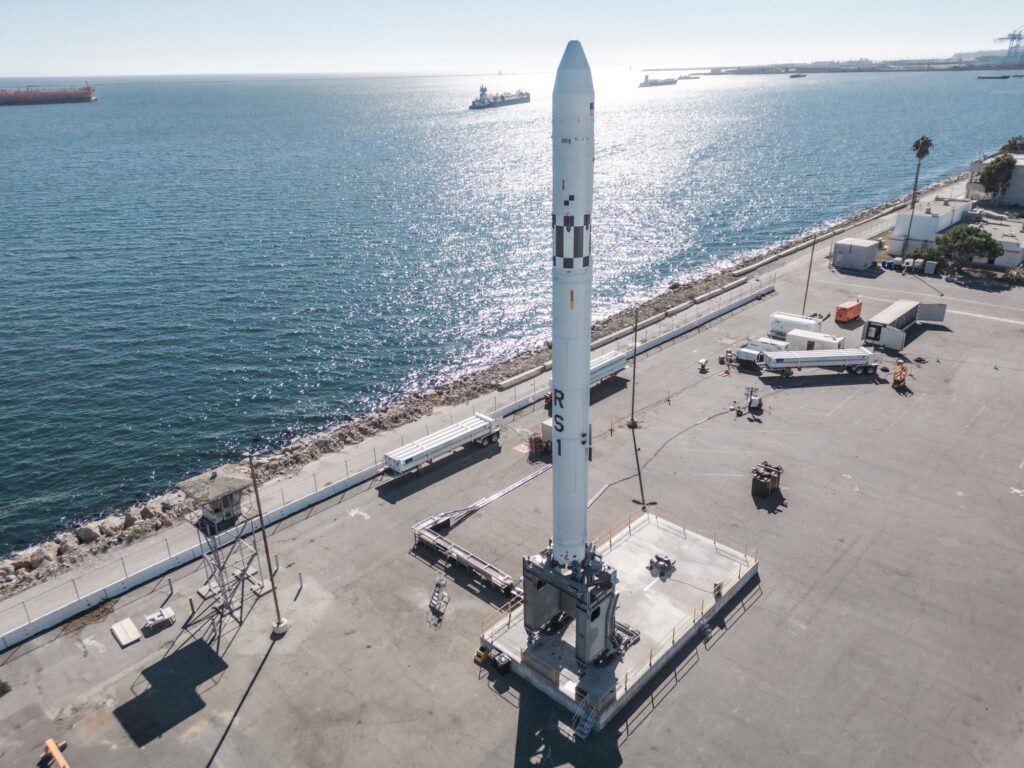Terran Orbital awarded $4.7 Million Contract by European Space Agency
Thursday, 26 October 2023 11:29 Terran Orbital Corporation (NYSE: LLAP), a global leader in satellite-based solutions primarily serving the aerospace and defense industries, has announced its wholly-owned international subsidiary, Tyvak International s.r.l., has been chosen as a prime contractor under a $4.7 million or euro 4.5 million contract by the European Space Agency (ESA) for a proximity operations and in-orbit servici
Terran Orbital Corporation (NYSE: LLAP), a global leader in satellite-based solutions primarily serving the aerospace and defense industries, has announced its wholly-owned international subsidiary, Tyvak International s.r.l., has been chosen as a prime contractor under a $4.7 million or euro 4.5 million contract by the European Space Agency (ESA) for a proximity operations and in-orbit servici Tightbeam tech set to revolutionize Global Marine Internet through Aalyria-HICO Partnership
Thursday, 26 October 2023 11:29 Aalyria Technologies and HICO Investment Group are joining forces to revolutionize maritime communications, having recently signed a Memorandum of Understanding (MOU). The agreement sets forth the scope and aims of a partnership that seeks to introduce Aalyria's Tightbeam high-speed, free-space optics communications systems across the maritime sector in various global regions, including the Midd
Aalyria Technologies and HICO Investment Group are joining forces to revolutionize maritime communications, having recently signed a Memorandum of Understanding (MOU). The agreement sets forth the scope and aims of a partnership that seeks to introduce Aalyria's Tightbeam high-speed, free-space optics communications systems across the maritime sector in various global regions, including the Midd China discloses tasks of Shenzhou-17 crewed space mission
Thursday, 26 October 2023 11:29 The Shenzhou-17 astronauts will perform various in-orbit space science and application payload tests and experiments, a senior official from the China Manned Space Agency (CMSA) announced at a press conference on Wednesday.
They will carry out extravehicular activities (EVAs), install extravehicular payloads and conduct space station maintenance and other tasks, said Lin Xiqiang, deputy di
The Shenzhou-17 astronauts will perform various in-orbit space science and application payload tests and experiments, a senior official from the China Manned Space Agency (CMSA) announced at a press conference on Wednesday.
They will carry out extravehicular activities (EVAs), install extravehicular payloads and conduct space station maintenance and other tasks, said Lin Xiqiang, deputy di High-resolution atmospheric modeling gets a boost with next-gen GEOS-Chem software
Thursday, 26 October 2023 11:29 In a significant leap forward for atmospheric science, researchers from Washington University's McKelvey School of Engineering have rolled out an advanced version of GEOS-Chem, known as High Performance GEOS-Chem. This next-generation software paves the way for researchers, policymakers, and citizen scientists to conduct highly detailed studies of air quality and greenhouse gases, using meteorol
In a significant leap forward for atmospheric science, researchers from Washington University's McKelvey School of Engineering have rolled out an advanced version of GEOS-Chem, known as High Performance GEOS-Chem. This next-generation software paves the way for researchers, policymakers, and citizen scientists to conduct highly detailed studies of air quality and greenhouse gases, using meteorol QuickSounder Spacecraft contract awarded by NASA
Thursday, 26 October 2023 11:29 NASA, on behalf of NOAA, has awarded a delivery order under the Rapid Spacecraft Acquisition IV (Rapid-IV) contract to Southwest Research Institute of San Antonio for the QuickSounder spacecraft.
The firm-fixed-price delivery order covers all phases of QuickSounder's operations to include spacecraft development, integration of NOAA's Advanced Technology Microwave Sounder Engineering Develo
NASA, on behalf of NOAA, has awarded a delivery order under the Rapid Spacecraft Acquisition IV (Rapid-IV) contract to Southwest Research Institute of San Antonio for the QuickSounder spacecraft.
The firm-fixed-price delivery order covers all phases of QuickSounder's operations to include spacecraft development, integration of NOAA's Advanced Technology Microwave Sounder Engineering Develo Hot summer for Europe's reusable rocket engine
Thursday, 26 October 2023 11:00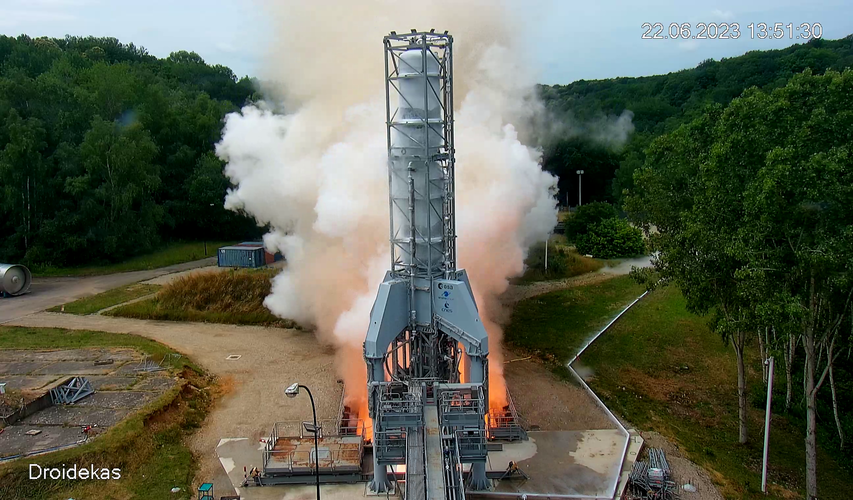
An ongoing project to develop a low-cost, reusable engine for European rockets made considerable progress over the summer and autumn, with a series of tests that achieved full ignition and, ultimately, a 30-second burn with re-ignition of an early prototype of the Prometheus engine.
Six trends to watch in commercial Earth observation
Thursday, 26 October 2023 08:20
With a multitude of opportunities for start-ups, established companies and investors, commercial Earth observation is a vibrant sector with fast-moving innovations in technology, datasets and downstream applications. ESA is a key driving force for the development of European Earth observation and provides impetus through its many programmes and initiatives.
To set the scene ahead of ESA’s Earth Observation Commercialisation Forum next week, here is some need-to-know background information on the evolution and state of play of the Earth observation industry.
Mission Spatiale arrives at the Cité des sciences et de l’industrie in Paris
Thursday, 26 October 2023 08:16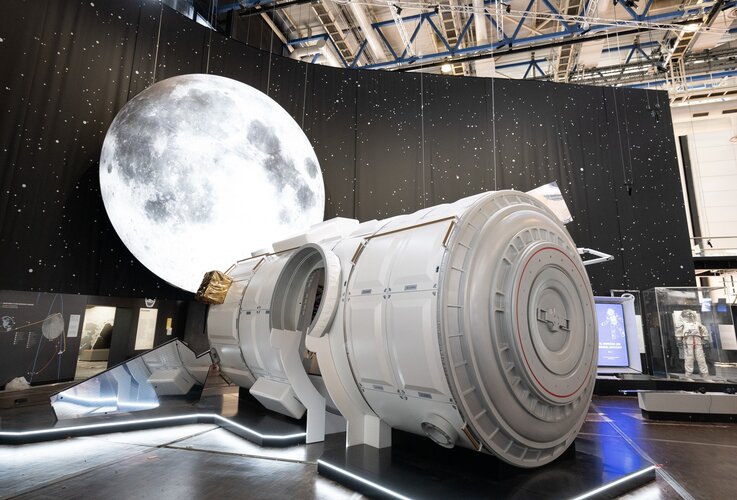
The permanent exhibition Mission Spatiale just opened its doors at the Cité des sciences et de l’industrie in Paris. Produced in collaboration with the European Space Agency (ESA), this immersive exhibition is dedicated to space exploration and invites visitors to embark on an interactive journey structured into five steps: Explore, Travel, Transit, Stay and Questions.
China launches new mission to space station
Thursday, 26 October 2023 07:08 China sent a fresh crew to its Tiangong space station on Thursday, in the latest mission for a growing space programme that plans to send people to the Moon by 2030.
The Shenzhou-17 blasted off from the Jiuquan launch site in northwest China at 11:14 am (0314 GMT), carrying a three-astronaut team with the youngest average age since the space station's construction.
At a farewell ceremony
China sent a fresh crew to its Tiangong space station on Thursday, in the latest mission for a growing space programme that plans to send people to the Moon by 2030.
The Shenzhou-17 blasted off from the Jiuquan launch site in northwest China at 11:14 am (0314 GMT), carrying a three-astronaut team with the youngest average age since the space station's construction.
At a farewell ceremony Cosmonauts to install equipment, check coolant leak on ISS during spacewalk
Thursday, 26 October 2023 07:08 Russian cosmonauts Oleg Kononenko and Nikolai Chub are scheduled to complete a spacewalk from the International Space Station Wednesday, according to NASA.
The cosmonauts are scheduled to begin their spacewalk. which is expected to last about 7 hours, at 1:55 p.m. EDT.
While on their spacewalk the cosmonauts will investigate a radiator leak on the Nauka multipurpose laboratory mo
Russian cosmonauts Oleg Kononenko and Nikolai Chub are scheduled to complete a spacewalk from the International Space Station Wednesday, according to NASA.
The cosmonauts are scheduled to begin their spacewalk. which is expected to last about 7 hours, at 1:55 p.m. EDT.
While on their spacewalk the cosmonauts will investigate a radiator leak on the Nauka multipurpose laboratory mo Introducing roster recruitment at ESA
Thursday, 26 October 2023 06:11
We are pleased to announce the introduction of roster recruitment at ESA as a new way to launch your career with us. If you work in a field for which ESA consistently recruits in high numbers, such as system engineering, corporate controlling and product assurance, placement on a roster will open up your access to job opportunities with us. The first ESA roster recruitment position has just been published, so here is a short explainer to bring you up to speed on this new system.
Rocket Lab projects Electron return to flight in fourth quarter
Wednesday, 25 October 2023 23:19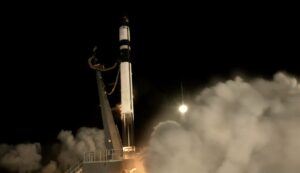
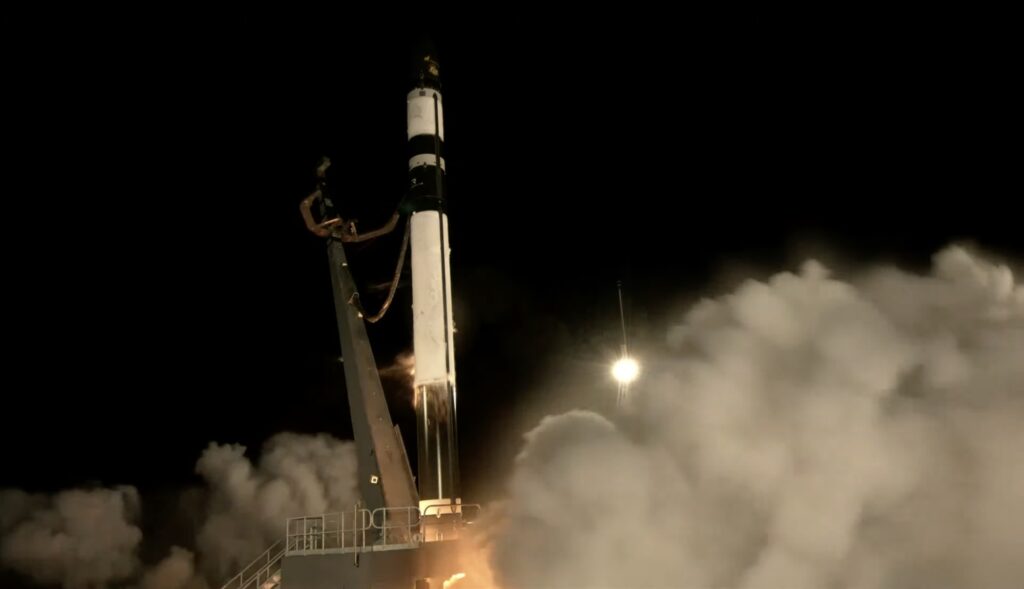
Terran Orbital hosting town hall meeting to revive flagging shares
Wednesday, 25 October 2023 21:13
